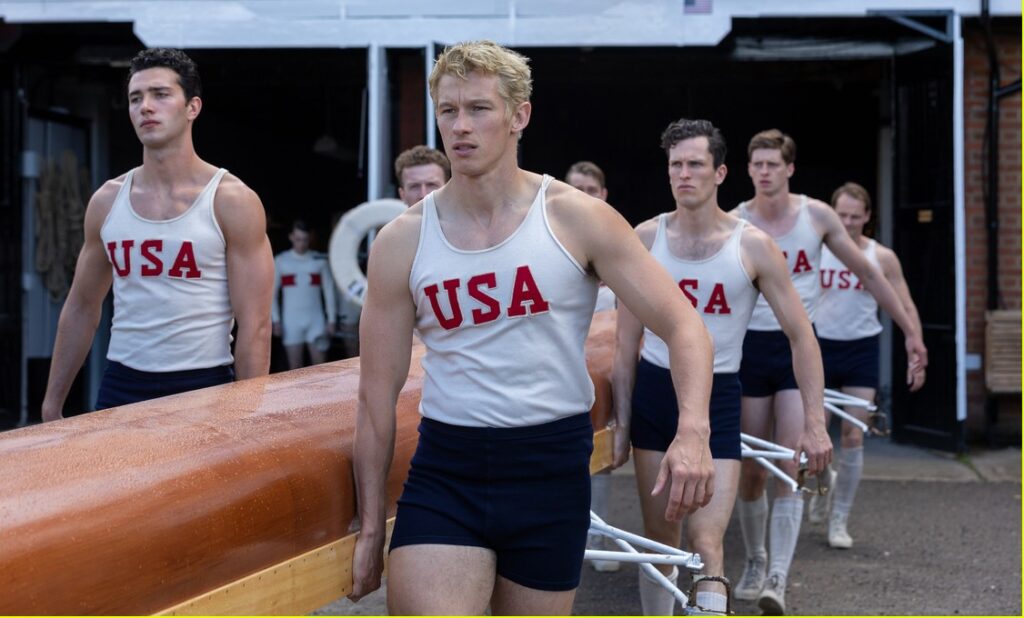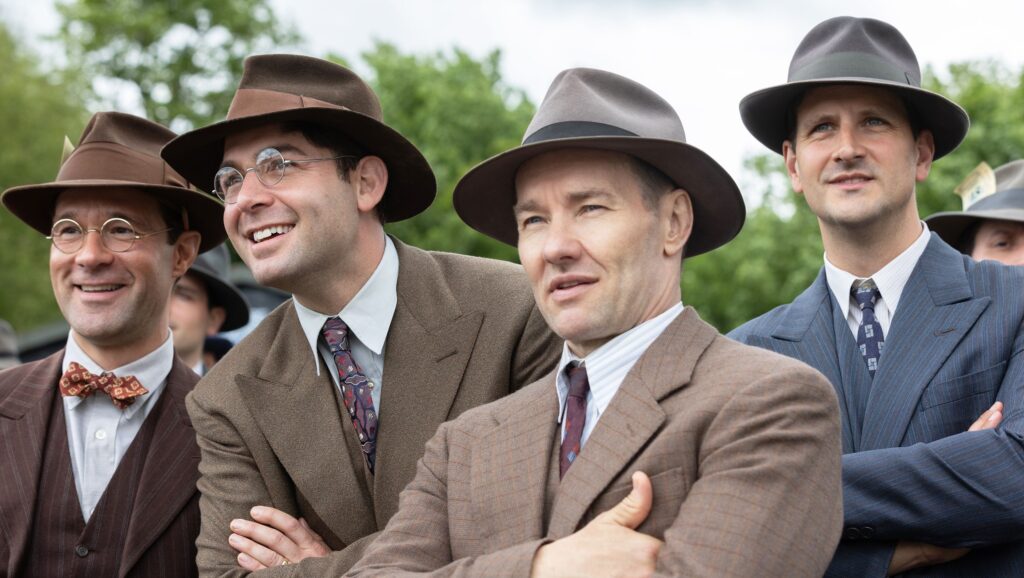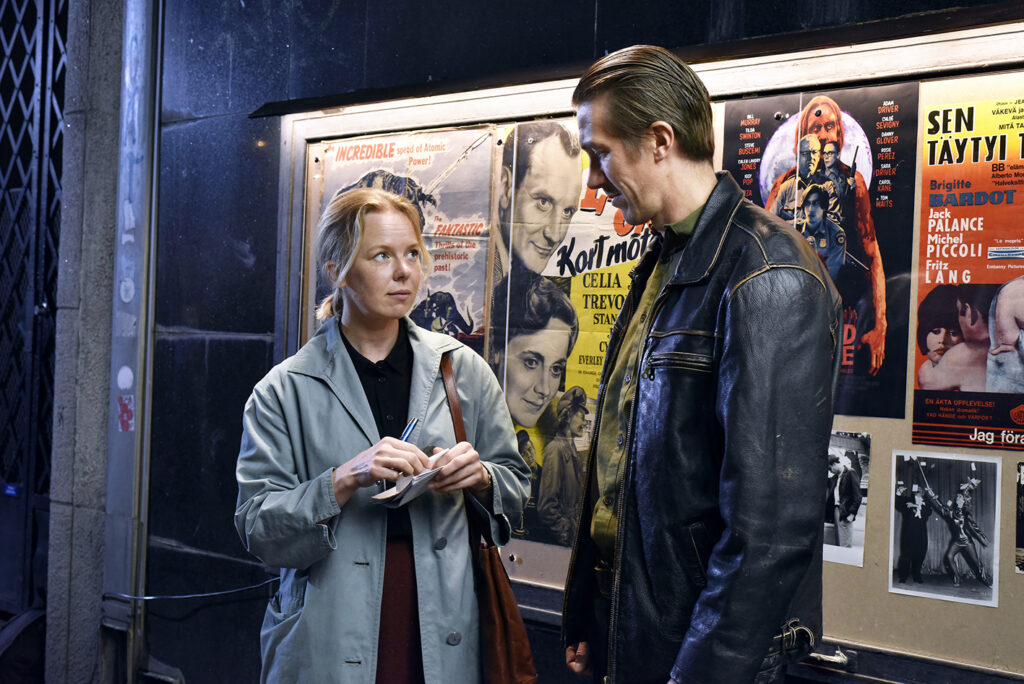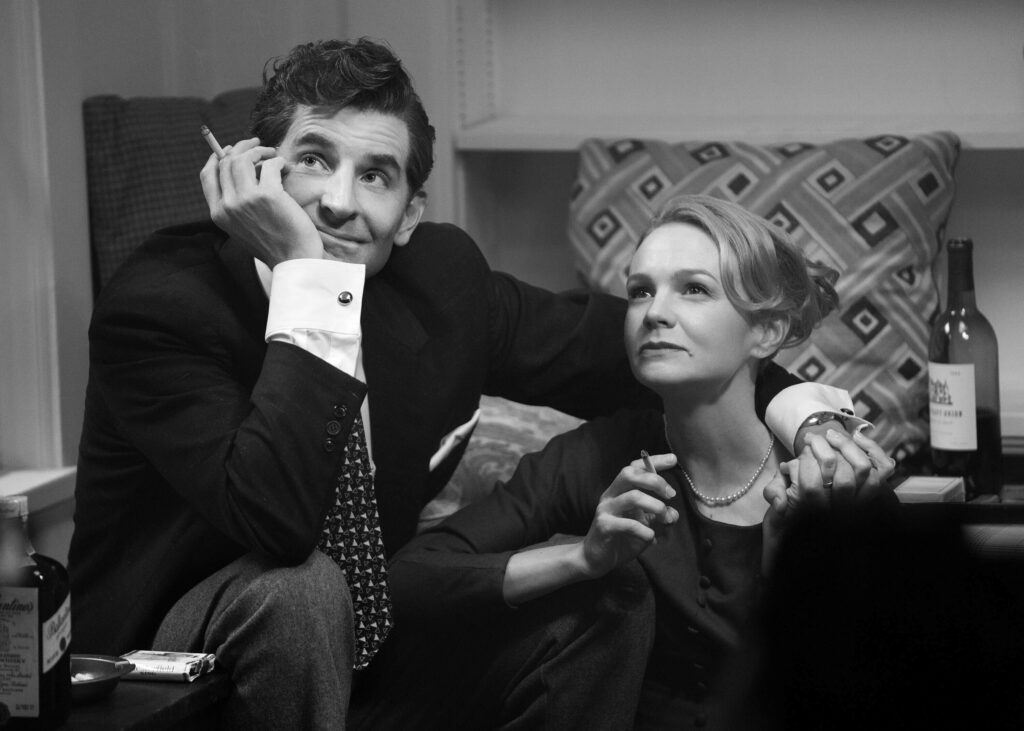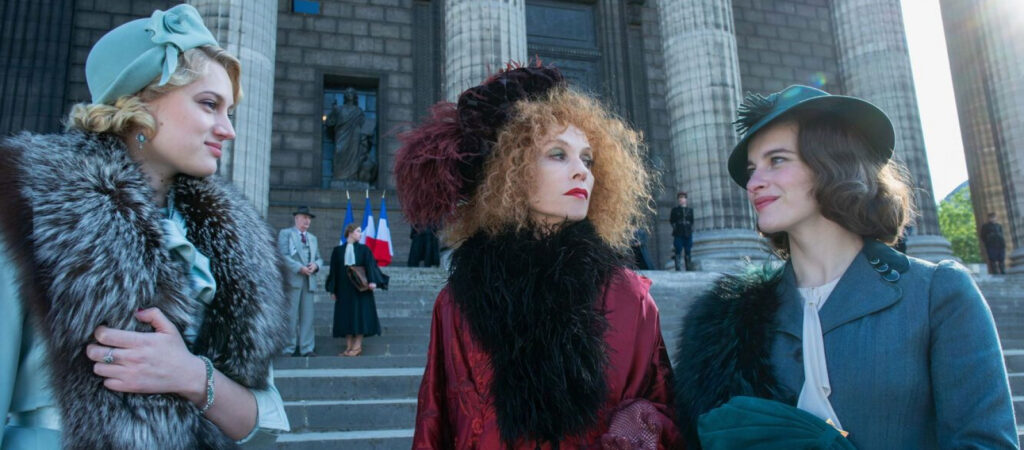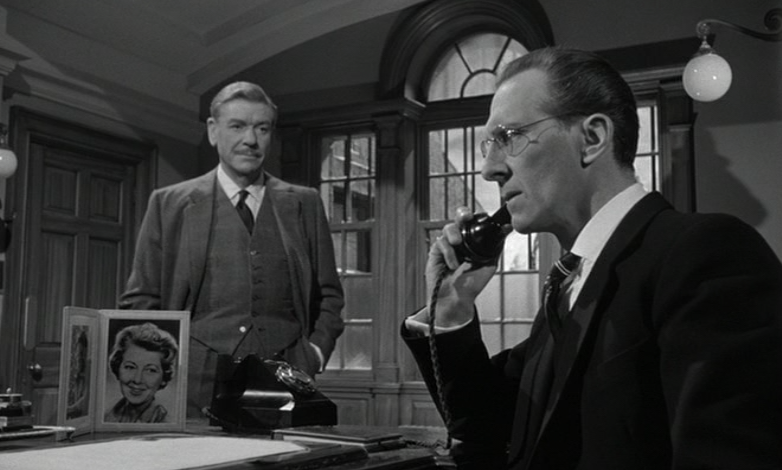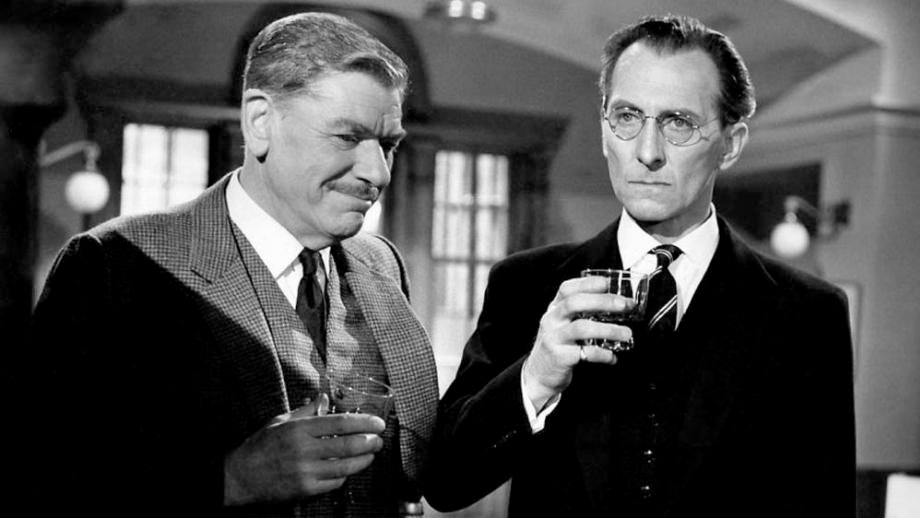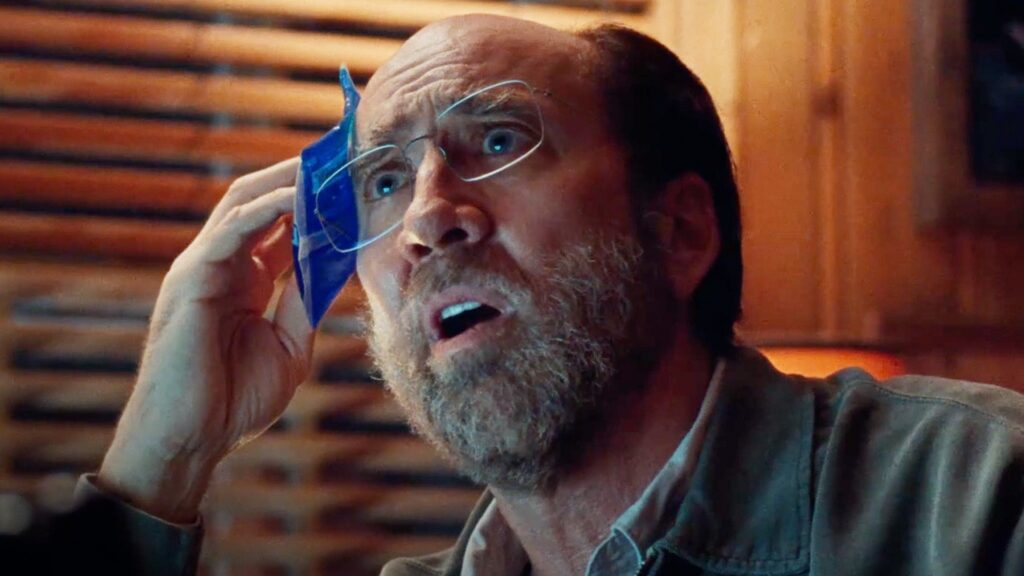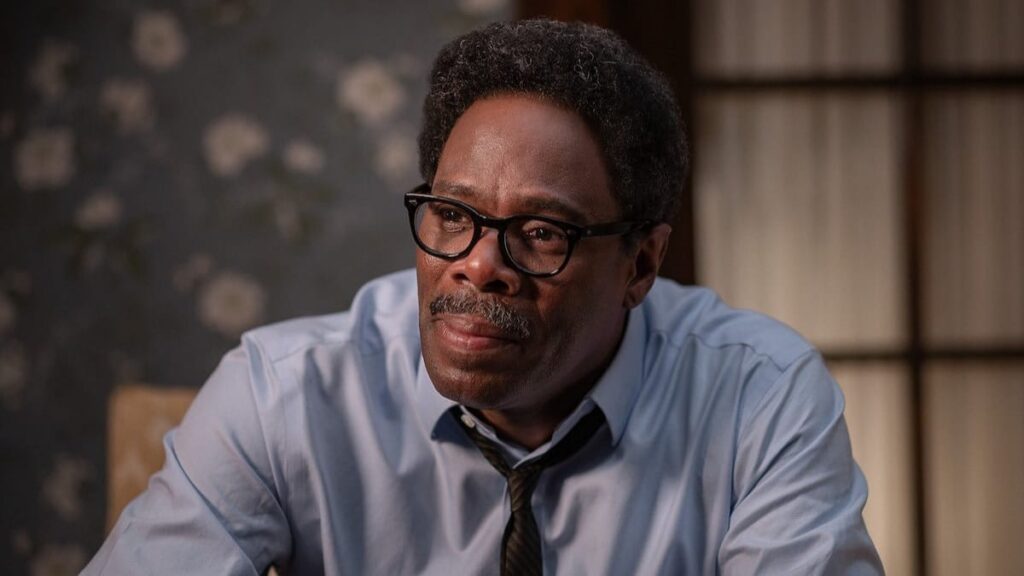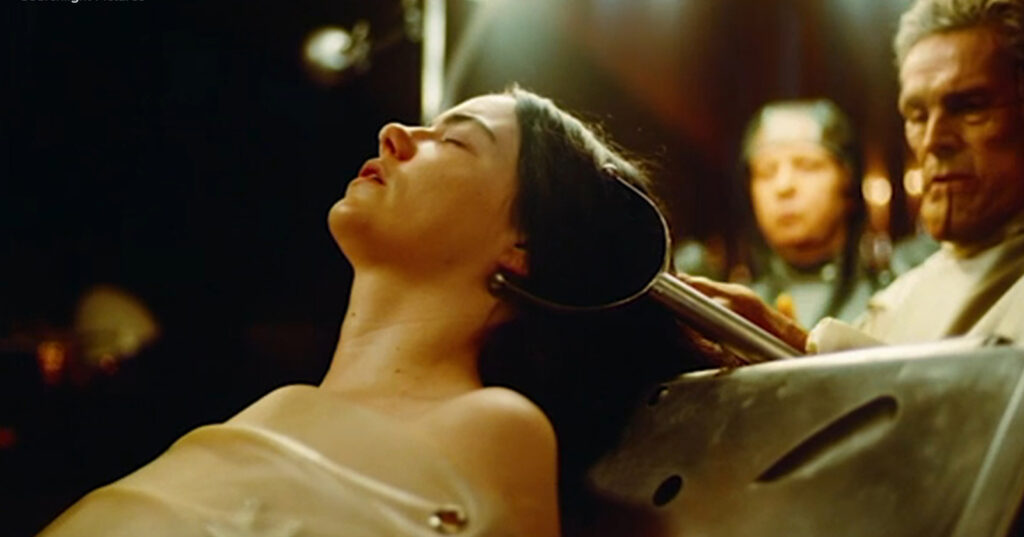
Well, here’s a movie unlike any you have ever seen. Poor Things begins as a Frankenstein movie, and evolves into an outrageously raunchy, funny and thoughtful feminist triumph. The kindly mad scientist Dr. Baxter (Willem Dafoe behind geologic makeup) implants the brain of a fetus into the body of a young woman and creates Bella (Emma Stone). The adult-sized Bella acts like a baby, then a toddler, then a child and so forth as her brain develops.
The key is that Dr. Baxter, confining her to his house, shields the developing Bella from all societal constructs, like common views of morality, manners, religion and gender roles. Bella is driven by the most basic natural human impulses – for pleasure and safety – without ever having learned any inhibitions.
When Bella’s teenage brain rebels, the scientist allows her independence, accepting that she will make mistakes while she learns how to navigate an outside world populated with humans behaving with avarice, lust and ignorance. One such character, hilariously played by Mark Ruffalo, is only too happy to harness Bella’s urges for sexual pleasure to his own benefit. Unfortunately for him, Bella’s brain develops beyond his ability to exploit her.
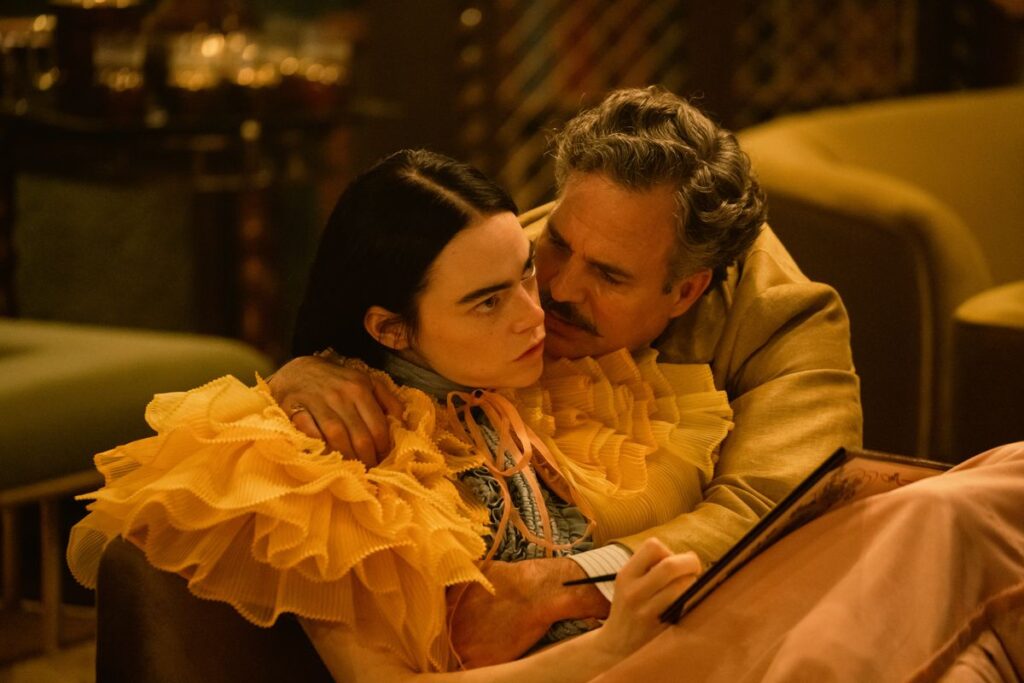
Poor Things is based on the novel by Alasdair Gray, so he’s the guy who actually imagined this bizarre and singular story, but director/jokester Yorgos Lanthimos has imbued it with his often zany and transgressive sensibilities. I was a big fan of Lanthimos’ absurdist breakthrough film Dogtooth, but then I didn’t like his acclaimed The Favourite and downright hated The Lobster and The Killing of a Scared Deer. I was encouraged by Glenn Kenney’s New York Times dispatch from Venice about how much he despised previous Lanthimos films and yet still loved and admired Poor Things.
The one thing that I didn’t like in Poor Things was when Lanthimos aped Wes Anderson and Terry Gilliam with some overly fanciful sets. Totally unnecessary to the story and a distraction.
Emma Stone’s performance is the year’s most startling. For one thing, she is certainly courageous and a good sport about spending so much of the movie unclothed and simulating sex. But the extraordinary element of her performance is in calibrating the subtle growth in Bella’s development.
Willem Dafoe and Mark Ruffalo are both great, too, and Kathryn Hunter (The Tragedy of Macbeth) elevates yet another supporting role.
Poor Things won the Golden Lion for Best Film at the Venice Film Festival, and made my list of the Best Movies of 2023. A feminist message is cleverly embedded in this brazen, dazzling and very funny movie.

